How many best sellers does Amazon
sell? Good question. It's a secret that top publishers would like to know-- so would
Barnes & Noble, Target, and Walmart. Amazon
is the unknowable elephant in the room who tightly guards sales figures. We do know that it is the biggest seller of
books in the world. (It is trying to get a domain name with ".book" and publishers are banding together to oppose the deal.) If you want to dig into the realm of publisher's
book sales:
go to Publishers Weekly
go to Nielsen Book Scan on Wiki

|
| Inside new library at the Pontifical Lateran University in Rome. |
more on magnificent libraries
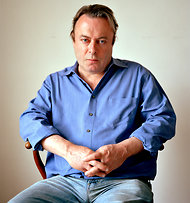
|
| Christopher Hitchens. photo: Mark Mahaney |
Writer Christopher Hitchens, shortly before his death
in 2011:
"In whatever kind of 'race' life may be, I have very abruptly become
a finalist."
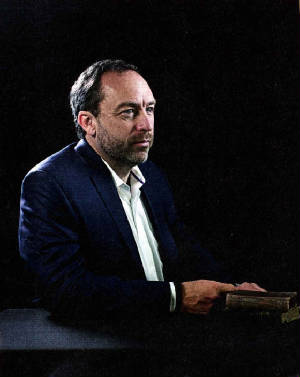
|
| Jimmy Wales, Founder of Wikipedia. |
The guy with the encyclopedic mind. As a boy, Jimmy Wales was mostly
home-schooled by his mother and grandmother and spent big chunks of time reading World Book and the Britannica. By the time the Encyclopedia Britannica
stopped publishing, in March 2012, it had been the staple resource of knowledge for 244 years. In it's place we have the global, real-time,
crowd-sourced, 24-million article entries in the compendium that is Wikipedia-- at out fingertips, any time, free of
charge. Wales,
a former Ph.D. student in economics, got hooked into the dot.com revolution, wrote code, built a web browser, and started
the site in 2001 with the egalitarian notion that facts, information, data-- and ultimately knowledge, should be available
to all. Wikipedia
has entries in 286 languages by 85 thousand contributors for nearly 500 million readers monthly. It's still very much
"Jimmy's baby," and he often says "Tomorrow it will be even better." The Wikimedia Foundation is the umbrella non-profit that covers an array of interconnected sites. There's an open-content
textbook collection, a dictionary, a quotation search engine, a travel guide, and lots more.
Notes from Jimmy Wales:
"Google might have close to a million servers. Yahoo
has something like 13,000 staff. We have 400 servers and 95 staff.
"Wikipedia is the #5 site on the web and serves 454
million different people a month-- with billions of page views.
"Commerce is fine. Advertising is not evil. But it
doesn't belong here.
"Wikipedia is something special. It is like a library
or a public park. It is like a temple for the mind. It is a place we can all go to think, to learn, to share our knowledge
with others.
"When I founded Wikipedia, I could have made it into
a for-profit company with advertising banners, but I decided to do something different. We’ve worked hard over the years
to keep it lean and tight. We fulfill our mission, and leave waste to others. Please help by making a donation if you can."
go to meet Wikipedia contributing volunteer writers worldwide
Writing is hard work. Only those more bothered by shirking
it than doing it can ever succeed at it." - George Higgins "Studying
writing doesn't make someone a writer. Writers need to write. An artist is his own fault." - John O'Hara
Stumble Upon has an excellent full text archive
search engine. Just enter author, title, or subject.
go to Archive Search

|
| Virology publication. |
Ever read a scientific paper? It's hard.
It's not hard because you're stupid; it's hard because it's hard. There's huge amounts of info squeezed tight.
You have to grind through and 'unpack it into your mind.'
After the abstract read the intro for the hypothesis and how experiment is tested and measured. Grasp what
the data are and the conclusion. Read the summary and interpretation of the findings.
Charts that seem inpenetrable require patience. It's not a novel or a magazine article. It's an action-packed
'paper' best read when relaxed with your own system of gleaning the key info.
Listen to a panel of virologists discuss "How to read a scientific paper."
go to How to Read Scientific Papers podcast.
go to Virology Blob episode 169
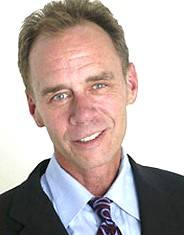
|
| David Carr, at The New York Times. |
David Carr knows media.
If you want to go behind the scenes and between
the lines at the New York Times, you could not find a better guide than Carr. He's been writing about journalism and
its intersections with business, culture, and government for 25 years.
Carr is a general assignment reporter on popular culture focusing on
the mediums of print, digital, film and television. He writes the 'Media Equation' column in the Business Section. Besides
being the 'go to' guy on the current state of journalism, his blog, Media DeCoder, nails it.
"The media is NOT the message. The messages are the media."
- David Carr
go to Media Decoder
Writing lesson from Capote:
Truman Capote fused truth and illusion. In "Answered
Prayers" he wrote:
"Because something is true doesn't mean that it's convincing, either
in life or in art. Think of Proust. Would 'Remembrance' have the ring of truth that it does if
he had made it historically literal? If he had been absolutely factual it would have been less believable.
"That's the question: is truth an illusion, or is illusion truth, or
are they essentially the same? Myself, I don't care what anybody says about me as long as it isn't true."
Do you deplore 'new' journalism as shallow, divisive,
and unreliable? What's happening?
"Perhaps this... is an early stage, in the collective drive and willingness
to devise new means of explaining the world and in the individual ability to investigate, weigh,
and interpret the ever richer supply of info available to us."
- James Fallows
go to Fallows' "Learning to Love the New Media" in The Atlantic
go to James Fallows' blog
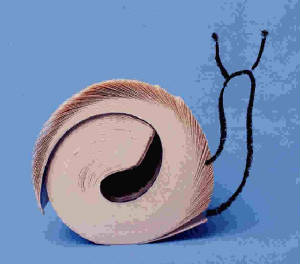
|
| IN PRAISE OF SLOW READING |
What’s
the rush?
After 15 years with the Internet, we frantically skiim
and skip through blurs of text.
Average reading speed is 200 words a minute. Isn’t
that enough? Apparently not. Speed-reading is still a fetish– and an "industry" with books, software, evaluation tests,
executive courses, classes, and workshops.
"Schools" teach silencing sub-vocalization and improving
recall. Lightning-fast reads are thought of as mandatory to career success. The race to acquire the skill is more frenetic
in a job-crunch economy where fast is good but faster is better.
In contrast, slow reading is associated with the learning
challenged who have disorganized brain tracts or two-digit IQs.
One speed-demon company’s slogan is "Don’t
struggle with nasty reading habits," which sounds worse than obesity, wrinkles, and psoriasis put together. Whoa!
"Slow Reading," a book by IBM technology specialist John
Miedema, challenges the notions of what it means to be a reader in an evermore complex world. He makes a powerful case for
the pleasure of engaged, reflective reading– which also increases mindfulness in the conduct of routine activity.
"Slow reading brings more of the person to bear on the
book, and vice versa. It develops a deeper and more intimate relationship with the information that builds richer memories
and a richer intelligence. And, of course, it increases comprehension."
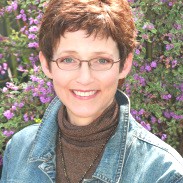
|
| Slow-reading advocate Tracy Seeley |
Tracy
Seeley, an English professor at the University of San Francisco says "Humans are crazy. We’re so enamored of technology
that we don’t take the time to think about how best to use it. When it comes to reading, the need for speed is vastly
overrated."
We’re bedeviled by machines at every turn,
and every one of them implicitly commands us to hurry up. We behave as if merciless taskmasters were whipping our backsides
and prodding us to move faster.
In the pre-internet ethos of the 1960's the chant
was "Tune in, turn on, drop out." In this era of TMI the logical mantra is "Turn off, turn off, turn off." Our bodies beg
us to do less and do it slower.
We might begin with getting off the reading racetrack
once in a while. It would greatly reduce stress and might approach a meditative state of reflection.
Different source material and types of information
require multiple paced reading– a combo that can give us a sort of mental whiplash. The important thing is not to fall
into the feverish trap of skim-racing everything.
Every reader makes a pace choice depending on the
subject of material: scanning, skimming, speeding, deep reading, and even re-reading. Each method has its place. Readers make
choices based on volume. Sometimes all you need is the executive summary. And it is possible to have too many subscriptions,
channels, and blog sites.
To sum up: speed-reading is not the only way to
deal with massive amounts of opinions and info. We can’t live at a snails pace– but a lot of reason and reality
exists somewhere in between. As thinking beings we can choose to downshift, be more selective, and lighten the load. Whew.
If you have an interest in tracking book sales, you need go no further
than Nielsen's Book Scan, a high-end service which is being offered free by Amazon to author's on Author
Central.
go for more about Book Scan
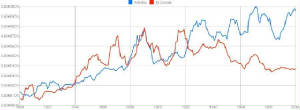
|
| Graph from the Ngram Viewer |
Did you know that you can see the results of Google
book scans? You can if you go to Google Labs and use the Ngram Viewer. Just fill in the subject and the range of years
in which you have interest. The graph above is the result of a search for the subjects 'Atlantis' and 'El Dorado' published
between 1800 and 2000. You can did further into the data sets if you have the skills.
go to Google Books Ngram Viewer
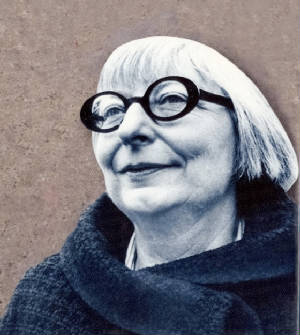
|
| Photo: Frank Lennon, Toronto Star. |
"I’m
in my home, in the universe, and I’m connected." - Jane Jacobs
Jane Jacobs was, above all, a writer. Without formal study of the ‘subject’
of urbanism she wrote a feisty article in Fortune Magazine, "Downtown is for People" and the seminal book "The Death and Life
of Great American Cities." Her words made the ‘big idea’ guys like Robert Moses look like boneheads.
Without formal study in economics, she wrote with intuitive pragmatism
on the subject in "The Economy of Cities", "Cities and the Wealth of Nations, "Systems of Survival, "The Question of Separation,"
and several more.
A sharp critic, tireless activist, and prose-poet, she epitomized a fiercely
independent mind.
To her the boast of "make no little plans" was a cock-eyed notion. She
placed high value on small plans-- and the piecemeal...
"Life is an ad hoc affair and has to be improvised all
the time. Big plans stifle the emergence of future alternative courses of action. Cities are not going to be humanized by
building huge urban models."
To her mind change happens in small and even smaller ways at a level
that cannot be seen by the casual eye. But nonetheless we know that it is happening because we see its effects.
At a Toronto conference in 1997 she railed against factories of ‘education.’
"I think we are misled by universities into thinking that there actually are separate and distinct fields of knowledge. For
they all link up. Everything is a seamless web. It’s a very functional thing– not just a poetic expression."
She illustrated her points by using the example of fractals. "One thing
holds another, reflects another, and so on and on to infinity." Her point was that everything starts at the smallest level...
"If you remove the big thing you can still have the little ones–
but not vice-versa. The big thing would be hollow. So once you know fractals you live in all of them at once. I live at 69
Albany Avenue and also the universe."
Her thinking parallels the shift from traditional science (e.g. that
the universe operates according to certain mathematical laws) to chaos theory. And as it turns out those old laws don’t
hold up. They don’t necessarily predict what happens.
What was once thought to be order is chaos– behind which there
is a complex order that results from the interweaving of many components... just like Jane Jacobs envisioned cities.
more on Jane Jacobs and her biographer Alice Sparberg Alexiou
Wikipedia is the only one of the top-ten websites that is operated as a non-profit-- add-free.
It depends on input and donations from its users. The encyclopedia is a dynamic repository of our culture and is dedicated
to the benefit of its users. It's open for anyone to access and edit.
go to Wikipedia
"Nothing is more impotent than an unread library."
- John Waters, film-maker
What's
new in publishing? A lot.
Every year about 25 thousand publishers, buyers, sellers, authors,
and librarians meet up. This year they converged in New York for "Book Expo America."
go to Book Expo America
An important group to track: International Digital Publishing Industry.
go to International Digital Publishing
"To know how to free oneself is nothing; the arduous
thing is to know what to do with one's freedom."
- Andre Gide

|
| The Newseum in Washington D.C. |
The
Newseum is news about news. It may be the most expensive museum in history,
but what the heck. We need it. Streetside, it has a 50-ton, 74-foot-high marble slab engraved with the First
Amendment. The transparent exterior conveys the idea of a free press and open society, a "Window
on the World."
Exhibits show news in all its glory (Edward R. Murrow's rooftop broadcasts
in a 4-D theater) and its shame (fabricated stories from Jayson Blair and Jack Kelley). You'll find Mark Kellogg's pencil
(he was a reporter killed at Little Bighorn with Custer in 1876), Daniel Pearl's laptop, and Bob Woodruff's vest.
Enter through the "Great Hall of News" to see breaking stories on a
giant digital "zipper." Then it's on to a 1.5-mile, 7-story jaunt through and around interactive kiosks and displays--
the expected and the surprising-- from history of news to Pulitzer prize winners and journalist's memorials.
You can tape yourself doing stand-up broadcasts as if you were reporting
from the White House. As in London's BBC visitor's center, you can try your hand at weather forecasts against a blue screen.
Sample the 15 theaters and two broadcast studios. And, since you're inside the beltway you'll get an awesome
view of the Capitol.
The nonprofit Freedom Forum
initiated, underwrote, and raised funds for the pricey Pennsylvania Avenue real estate and structure
that includes 135 apartments, Newseum shops, and Wolfgang Puck's "Source," a three-story restaurant.
(Architects: Polshek Partnership; Exhibits: Ralph Appelbaum Associates. Newseum's
president is Peter S. Prichard, former editor of USA Today.)
go to the Newseum
go to Freedom Forum
go to Today's Front Pages
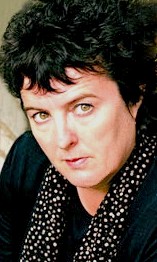
|
| Poet Laureate Carol Ann Duffy |
Poet Laureate: a first.
Carol Ann Duffy, 53, is the Poet Laureate of Great
Britain, with a term of ten years.
Since the 17th century, few positions-- apart from the
Pope, or perhaps the manager of the England football team--have proved so unattainable to women. Yet after almost 400 years,
Duffy has received the honor.
Modern predecessors include Dryden, Tennyson, and Wordsworth.
U.K. culture secretary Andy Burnham calls Duffy (also a playwright) a "towering figure in English literature."
In earlier centuries, the job of Poet Laureate was that
of a courtier who was expected to produce odes for royal birthdays and coronations. But don't expect a Duffy sonnet for
Prince Harry's nuptuals. Rather, she aims "to contribute to people's understanding of what poetry can do, and where it can
be found."
Her most recent collections are "The World's Wife," "Feminine Gospels,"
"The Good Child's Guide to Rock'n Roll,"and "Out of Fashion."
Duffy's work is acclaimed for its accessibility to wide
readership through brilliance in stretching imaginations and capturing emotions.
"Writing is the ax that breaks the frozen sea within."
- Franz Kafka
 |
 |
CAN YOU RAED TIHS?
I cdnuolt blveiee taht I cluod aulacity
uesdnatnrd waht I was rdanieg. Hurarh for the phaonmneal pweor of the hmuan mnid! Aoccdrnig to rscheearch at Cmabrigde Uinervtisy,
it dseno't mtaetr in waht oerdr the ltteres in a wrod are. The olny iproamtnt tihng is taht the frsit and lsat ltteer be in
the rghit pclae. The rset can be a taotl mses and you can sitll raed it whotuit a pboerlm. Tihs is bcuseae the huamn mnid
deos not raed ervey lteter by istlef, but the wrod as a wlohe. Amaznig!
|
|
 |
 |
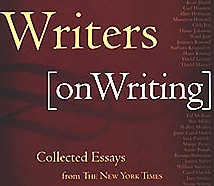
If you missed the series "Writers on Writing" in the New York Times, the collection of 46 essays has
been compiled in book form by Times Books/Henry Holt. Writers include Saul Bellow, E.L. Doctorow, David Mamet, Joyce Carol
Oates, Susan Sontag, and Alice Walker. All are fascinating and instructive.
Time Blogs for Everyone
Time magazine's
online edition offers a wide range of blogs anchored by its senior writers. You may want to 'blog in.'
go to Time Ideas
"I
have always imagined that Paradise will be a kind of library."
- Jorge Luis Borges

Ride the escalator to a meeting room. Here are some images from Seattle's vibrant central library designed by Dutch architect Rem Koolhaass. It's
an entire city block, with a westward slope toward Elliott Bay. Critics call it powerful, stunning, strangely hypnotic-- so
it's a hit. For Seattle, it's the centerpiece of "Libraries for All," with five new branches and
renovation of two-dozen more.
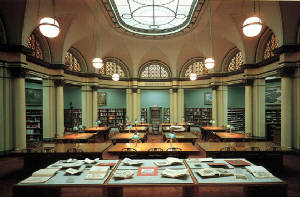
|
| Reading Room of The Ryerson Library. Click to enlarge. |
The Ryerson Library:
designed by Shepley, Rutan and Coolidge in 1901, was restored in 1994. It merged with the
Burnham Library of Architecture in 1957, and is situated within the Chicago Art Institute. It's
one of the largest museum libraries in the world.
go to Ryerson and Burnham Libraries
 |
 |
Reader Portraits:
Futurist
Alvin Toffler seeks to diversify his sources of information.
"I’m reading 6 to 8 books at the same time. And I like that because book
A may be about the history of religion and the enlightenment; in book B I might be reading about
Google.
"When you read in totally different categories simultaneously you begin to see links and relationships
that you wouldn’t otherwise imagine. And so it stirs new thinking– to diversity.
"I’m a reading machine. Everyday
I read the New York Times, Financial Times, the L.A. Times– and best of all I read The Daily Yomiuri. With
ten million copies a day, it dwarfs the combined circulation of the New York Times, Washington Post, USA Today, Los Angeles
Times, and Wall Street Journal. The English edition is wonderful. It not only has news about Japan and Asia, but it always
has a few pages from The New York Times, Washington Post, Chicago Tribune, London Times, and so forth. So you get a
world picture by reading the Yomiuri."
Toffler is the author of "Future Shock," "The Third Wave," "Power Shift," and "Revolutionary Wealth."
|
|
|
|
 |
 |
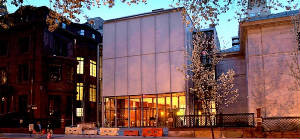
|
| New York's Morgan Library expansion |
New York’s great Morgan Library has
reopened after years of expansion construction. Built in 1906 by J.P. Morgan at 36th and Madison, it’s first annex
was the opulent neo-renaissance icon by Charles McKim in 1928. It's sumptuous collection is a treasure
for researchers of art, rare books, and manuscripts.
Italian architect Renzo Piano has restored
the complex to its former prominence, integrating three new structures into the site. His soaring glass
atrium leads to a central court from which all library activities radiate. The large underground space, with a fabulous theater,
expands the museum by a third.
Piano defers to the Morgan’s "feel" and doesn’t compromise
the neighborhood’s scale. Glass and steel is aligned with history. He is comfortable with contradiction and has created
a mesmerizing rhythm between new and old. The Morgan Library has always been inseparable from it’s
architecture; now it is a polished jewel firmly set in the present.
go to the Morgan Library
go to Renzo Piano's workshop
The Internet has put a painful
crimp in traditional publishing. Difficulties are compounded for magazines whose costs of retaining print readers rise while
advertising revenues decline. Young readers are spending more time online and want their information to be
timely. While faithful subscribers still want issues delivered in print, the future of periodicals is clearly electronic and
interactive. Even scholarly journals like the Economist face a demand from their readers for electronic publication.
A perfect example of this transformation is the Technology
Review, published by the Massachusetts Institute of Technology, founded in 1899. In 2006, its new
editor, Jason Pontin, turned the business upside down by halving the annual print editions and fully pumping up the magazine's
website. He says "we used to be a print magazine with a website; from now on, we will be an electronic publisher that also
prints a magazine."
|
"Time has no divisions
to mark its passage--there is never a thunderstorm to announce the beginning of a new month or year. Even when a new century
begins it is only we mortals who ring bells and fire off pistols.
- Thomas Mann, "The Magic Mountain," 1924.
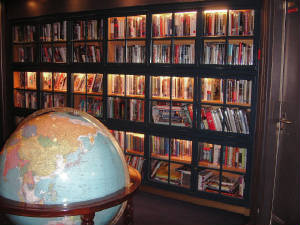
|
| Reading room, Brilliance of the Seas. Photo: Lorbit. Click to enlarge. |
Books with Extra Laugh Value*
Brits and Americans famously speak and read different languages, and
laugh at different things. Here are the books highest on Britain's humor list... *across the pond.
go to Abe Books Funniest in the UK
"The unread story is not a story; it is
little black marks on wood pulp. The reader, reading it, makes it live; a live thing, a story." - Ursula K. Le Guin
 |
 |
Epochal
changes in publishing:
Media congloms
bought not just the airwaves but publishing houses as well. Then they quickly discovered there’s no profit in literary
publishing. The solution? Cut output, cut staff, purge backlists, and focus all energy on bestsellers.
The result
is a boom for independent literary publishing houses, which are often non-profits. They are struggling and thriving. High
end magazine publishers are also on top of their game, and there is endless good reading online. So no excuses.
The
expert on this phenomenon is Andre Schiffrim, author of "The Business of Books, revised edition."
|
|
 |
 |
go to see how developers are adding libraries and communal study areas
TASCHEN, to put it gently, is a
revolutionary publisher-- printing great art and design books at affordable prices in the U.S., The Netherlands, Spain, France,
and England. Its website is fun and brassy--always featuring a terrific audio-visual presentation by an artist/author
of note. Just click and it's there for you.
go to Taschen
Here's a quick way for readers to connect
quickly with all the top newspapers and magazines on the internet. Just click a national flag on the global map and make your
choice. Is this a great idea or what?
|
|
go to Global Connect Online
|
Just
how do books get reviewed in the New York Times?
Julie Just, deputy
editor of the book review section, explains:
"We get five or six hundred
books a week. Eight of our staff members read constantly, looking for voices that make a statement with conviction,
and they make suggestions and picks for discussion.
"We look for subjects that really engage readers.
Then I search for the exactly right reviewer for each book."
Books for Big Bucks:
A first-edition of a Harry Potter signed by the cover artist
brought almost $13 thousand. If you're curious about books sold last year for big bucks...
go to Abe Books Top Dollar List
|
 |
 |
 |
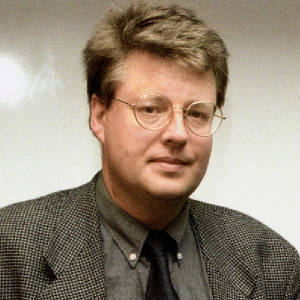
|
| Stieg Larsson (1954-2004) |
The Man Who Left Too Soon
Stieg Larsson was an investigative journalist
and editor of the magazine Expo in Stockholm.
He had written since early childhood and was intrigued with crime fiction.
To try his hand at it he outlined and began drafting ten books for his "Millennium Series," based
on the narratives of Mikael Bloomkvist, a fictional publisher of Millennium Magazine, and Lisbeth Salander, a computer hacker
and researcher.
By 2004 he had completed the first three novels and was half-way through
a fourth book, titled "Guds Hämd" (God’s Revenge). He delivered the three completed manuscripts to the editor of a small
Swedish publishing house; a few weeks later he died of a heart attack.
When published in 2005, Larsson’s ‘Trilogy’ became
a craze in Sweden. The first book, "Man Som Hatar Kvinnor," (Men Who Hate Women) was quickly released with the English publisher’s
title "The Girl with the Dragon Tattoo."
Translations of the next two books came in quick succession. For starters,
60 million copies sold in 50 countries. Three movie productions based upon the books were shot in Sweden, in Swedish with
an array of language subtitles, in less than two years. The Hollywood version of the first story was released in 2011.
Because of the popularity of Larsson's books, tourism has
greatly boosted Stockholm's economy. The airlines, hotels, cafes, retailers-- all benefit.
Avid fans take the 'Larsson walk' and seek out his hangouts. Groups visit
the streets they have 'seen in their minds,' apartment addresses of Bloomkvist and Salander, Expo offices, and much more while
enjoying the glories of one of the most beautiful cities in the world.
go to The Millennium Tour
go to Stieg Larsson Bio
go to Stieg Larsson site
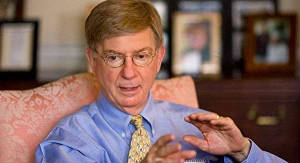
|
| Syndicated columnist George Will. |
George Will's oped columns appear in 360 U.S. newspapers.
This puts him in first place for total reach: circulation to 52 percent of readers. Maureen Dowd comes in at
9th place, Paul Krugman at 11th, Bill O'Reilly at 29th, Frank Rich at 63d, Amy Gooman at 85th, and Ann Coulter at 95th.
These figures are pulled from the first deep analysis of columnists and content-- conducted
by the researchers at Media Matters for America.
Its study shows that the political opinions of the majority of the top 100 oped writers
are skewed toward conservative views. In fact there are three columnists who lean conservative for every one who leans
progressive.
Just throw a dart at a map of the United States and pick up their local paper. Chances are good that you'd
be reading a paper whose op-ed pages lean to the right. It's easy to surmise who has the upper hand.
Newspapers are still the source with clout.
Though they have suffered steady declines in readership over the last two decades, newspapers remain in many
ways the most important of all news media-- because top-level decision-makers read them.
The Newspaper Association of America estimates that each copy of a weekday paper
is read by an average of 2.1 adults, and the Sunday paper by an average of 2.5 adults, pushing
total newspaper readership for daily papers to more than 116 million and Sunday papers to more than 134 million.
This means that some columnists reach tens of millions of readers-- and one, conservative George
Will, actually reaches more than 50 million.
Another interesting tidbit: According to a Pew Research study, newspapers are the
preferred news medium of those most interested in political news. These more aware citizens tend to influence the opinions
of their families, friends, and associates.
Obviously, columnists have a unique ability to influence public attitudes and the national debate.
And whether you examine them alone or as a group you'll find that conservatives have a clear advantage over their counterparts.
The report from Media Alliance is well worth a look.
go tothe Media Matters study of U.S.syndicated columnists
Power up your mind at MIT.
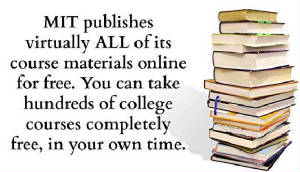
Forget fees, tuition, transportation, book-bags, and the
high cost of Boston living. Choose a course of interest and 'go to school' whenever you want. You can even earn an MIT certificate.
go to class at MIT
Electronic Mini-Books.
The latest electronic "literature'' is the Kindle
Single. It's but one form of a growing niche for novellas or a long-form journalism style in a truncated version of
the traditional-length hardback. At best, they're condensed genius, but then there are the others.
go to Electronic Mini-Books
Notes from Jim Holt, author of "Why Does the World Exist?: an Existential Detective Story."
"The universe is a form of infinite messiness and mediocracy."
"Most physicists agree that science cannot explain the mystery."

|
| Dan Rather |
Yes, he's still "Rather Outspoken."
Dan Rather still does what he loves-- reporting
news in the field and 'filing' gutsy investigations and irreverent interviews. His shows on HDNet deserve a wide audience.
go to Dan Rather News
Keep our internet free.
Many websites concerned with media justice are periodically going dark to
protest the U.S. House of Representatives’ Stop Online Piracy Act (SOPA) and its companion
bill in the Senate, the Protect Intellectual Property Act (PIPA).
Both of these bills would alter the technical operations of the Internet, and threaten Internet Freedom and openness
online. If these bills pass, they will change the Internet as we know it. Neither bill would be effective at stamping
out online piracy, but both will have consequences for how the Internet functions as a whole.
Today, more than ever, artists, and small business owners depend on an
open Internet, which allows them to reach large audiences and make a living-- using this digital platform to create, distribute,
and promote their work. But these new laws, in the name of ‘copyright and the protection of creativity,’
will penalize sites that are deemed to support ‘infringing activity.’
The language in the bills could affect thousands of lawful websites that artists
use for publishing and distributing their work. In addition, organizers and Human Rights advocates who depend on the open
Internet could now face increased Internet censorship and threats to online speech.
A number of other websites like Wikipedia, Craigslist and Reddit (nearly
7,000 in all) will go dark from time to time to protest passage of these bills. These demonstrations will continue periodically
to help inform the public of an impending disaster and loss of freedom on the net.
Communications is a fundamental
human right, and access to a fair and open Internet is a major human rights issue of our time. Now, more than ever, it's important
for our communities to stand together to protect Internet Freedom from this new threat.
Take a minute and call your elected official! Let them know that
Internet Censorship is not what our communities want or need. Urge members of congress to reject this dangerous legislation in both its forms!
go to Center for Media Justice
go to the SOPA strike
"No two people read the same book."
- Edmund Wilson
Stop the enemies of National Public Radio
who want to pull the plug on funding. NPR happens to be the only source of 'balanced news' available to its listeners.
KEEP NPR ON THE AIR.
go to Save the News
Are our brains disrupted?
In the ‘60s, when Marshall McLuhan coined the phrase "The medium is the message" it seemed futuristic. Turns out he was wrong. Today’s reality is that
the media is irrelevant. Message is everything.
A new book can be delivered in a multitude of ways. No–
not just Kindle and iPhone apps. There is so much more.
Nick Bilton is almost excessively
tech savvy. Could be that’s why he’s the lead technology writer for the New York Times. When he wrote his first
book "I Live in the Future and Here’s How It Works," he moved his message through a myriad
of mediums.
He gives us a peek into the new age of online
journalism where news, publishing, story telling, even human identity, are radically transformed. Certainly the static corporate landscape has changed– old ways of mass communication are dysfunctional.
Youth is taking over with steady hands. New tech ‘gadgets’
are not a fad... they are the direction. Conventional newspapers as we knew in the past are as extinct as dinosaurs.
With deep understanding of the message/media connection and conundrum
he offers a provocative roadmap– like it or not.
During this whirlwind change of methods and manners,
Bilton knows why our world, work, and brains are being creatively disrupted. So if you feel that happening to you– know
that you are not alone.
go to watch Nick Bilton's video describing ways to move the 'message'
"A
writer is someone for whom writing is more difficult than it is for other people." - Thomas
Mann
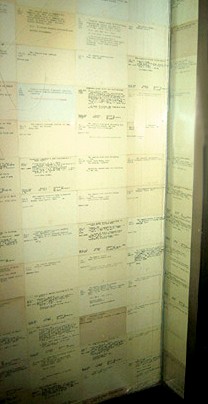
|
| L.A. library elevators display seven million library catalog cards. |
There is a huge 'library' of 'out-of-copyright' books available. Project Gutenberg has more than 38 thousand-- and they're free.
go to Project Gutenberg

|
| Joan Didion, detail, Annie Leibovitz |
In December 2003 two terrible things happened: Didion's only child, Quintana (37 and newly married) was hospitalized in a coma, suffering from pneumonia and septic shock.
Five days later her husband of 40 years, writer John Gregory Dunne, died of cardiac arrest as the
two were about to have dinner in their New York apartment. Didion was mixing the salad and lighting the candles. "Life changes
in the instant. You sit down to dinner and life as you know it ends."
That moment propelled her from the ordinary to the catastrophic–
and submerged her in a "magical" state of grief which "comes in waves, paroxysms, sudden apprehensions that weaken the
knees and blind the eyes and obliterate the dailiness of life." She found herself struck dumb by pathological bereavement;
she was deranged in that she wanted to bring him back.
Both writers worked at home and were filled with the sound of each other’s
voices. "For forty years I saw myself through John’s eyes. I did not age." Uncommonly close, "We were each the person
the other trusted. There was no separation between our interests in any given situation." She yearned to talk to her husband
about her grief, She made notes on her computer but did no real writing. She busied herself, but "stacking magazines seemed
at that point the limit of what I could do by way of organizing my life."
"Grief turns out to be a place none of us know until
we reach it. We do not expect this shock to be obliterative, dislocating to both body and
mind. We do not expect to be literally crazy, cool customers who believe that their husband is
about to return and need his shoes... nor can we know ahead of the fact the unending absence that follows, the
void, the very opposite of meaning, the relentless succession of moments during which we will confront the experience
of meaningless itself."
Quintana was moved to the UCLA Medical Center in Los
Angeles, where Didion and Dunne had lived for most of their marriage. When she drove around she tried to avoid streets
and places that triggered a sudden rush of memories. She took strange routes, yet the memories burst through.
She writes of her virtual disembodiment with unsparing candor. She arrived
at a point where "The craziness is receding but no clarity is taking its place." Finally, she began to write "The
Year of Magical Thinking." She wrote it fast, in lacerating, brutally candid fashion. Soon after she submitted
her final manuscript, in August 2005, Quintana died. Didion decided not to alter the book. "It’s
finished," she said.
When her book was announced the winner at the National Book Awards dinner,
Didion climbed to the podium and said "Thank you." Her acceptance followed a written speech by the blustering Norman Mailer
who received an honorary award. Her simplicity was appropriate.
go to Didion interview by Terry Gross
go to Didion interview by Susan Stamberg
"I think nobody owns the land until their dead are in it."
- Joan Didion
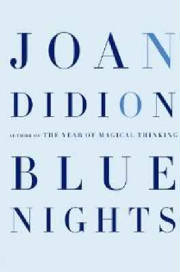
|
| Joan Didion's Blue Nights |
Didion's book about motherhood and her her deceased daughter stopped
midway, when the heartache of it made her want to return her advance to the publisher. But she was urged to continue,
and finished a brilliant piece on love and loss.
go to Didion's Blue Nights
"Grief is a sign of our humanity. It's the tax we pay on our attachments."
- Thomas Lynch, poet.

|
| Jane Fonda writes her story: "My Life So Far" |
The lives of Jane:
The New Yorker mentions the "legal concept" of femme
couverte, whereby a woman, upon marrying, is absorbed into the person of her husband, as described by the 18th century
British scholar Sir William Blacksone.
In his "Commentaries on the Laws of England" he wrote that "The very
being or legal existence of the woman is suspended during the marriage, or at least is incorporated and consolidated into
that of the husband, under whose wing, protection, and cover she performs everything." Is Fonda a femme couverte?
more on "My Life So Far"
After a century it's
Twain Time again.
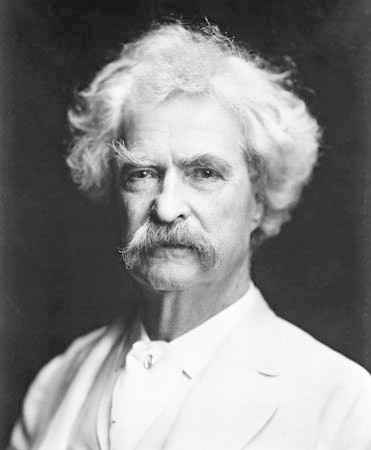
|
| Our great humorist was a serious fellow. |
Mystery
Man For a guy who loved
to read in bed for hours at a time it's a wonder that his life was so action-packed with world travel, copious writing, and
monologue performances on the lecture circuit.
He also found time to keep a diary-- one which he specified
not to be published until a hundred years after his death. That time has come and the University of
California Press has published the first installment of what will be a three-volumn set.
His reflections come in an idiosyncratic stream of consciousness
unlike any other great writer's autobiography. But, alas, there is no dramatic reveal about the man himself.
As Newsweek critic Malcolm Jones
wrote,"It is pure, uncut Twain from start to finish. Just don't think that this settles the issue of his identity. The autobiography
only compounds his protean elusiveness. He is still a mystery-- a riddle wrapped in an enigma shrouded in a white suit."
go to Mark Twain news and quotes
The autobiography that Twain hyped up during his lifetime and embargoed
for a century is a mess.
Garrison Keillor wades through the jumble for his review
and podcast for the New York Times Magazine: "Riverboat Ramblings."
more on Keillor's review
"No two people read the same book."
- Edmund Wilson
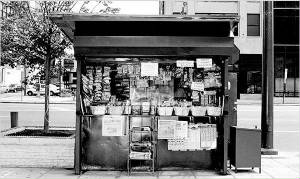
The last stand?
Newspapers are bleeding money. Readership has tanked
and display advertisers have fled.
America’s
big newspapers have international bureaus and are the primary source of news gathering in the U.S. They are the record of
a city’s life.
But they have sorely diminished with each passing month. Sales and readership
is way down– and their once rock-solid advertisers have quit the big layouts and haven’t migrated to newspaper
websites.
The revenue stream from classified ads began to dry up when the surge
of personals headed over to Craig's List.
All signs point to the demise of newspapers. The recession hasn't helped.
It looks as if journalism is done with paper, ink, trucks, fuel– and the whole wonderful era that began in the early
20th century.
The relentless self-prophesy that print is doomed is a problem in itself.
(Case in point: TV is taking a swan dive but doesn’t broadcast that news.)
New Age Journalism boosters like Alberto Ibargüen,
are deep into revolutionary tactics and applaud the non-profit web-news start-ups like Minnpost.com and Voice of San Diego–
which position themselves for hefty grants for journalistic investigations.
Journalism’s new arena (think "the media ecosystem")
is blatantly untraditional where news is a process rather than product.
The web site of Jim Romenesko charts the sinking
pool in newsrooms. Journalists with a capital J arer losing to citizen journalists with a small j who cover local news in depth.
Small papers (circ. under 50 thousand) are doing better. and there is
still hope that the "Big Brands," i.e. The New York Times, The Washington Post, The Wall Street Journal, and USA Today, will
recover one way or another.
Bankruptcy claimed the Los Angeles Times, The Chicago Tribune, The Baltimore
Sun, The New York Sun, The Orlando Sentinel, and The Hartford Courant.
Second-tier papers are going down with guns blazing– but they may
reorganize, transform themselves, unload debt, and somehow survive.
Why Shakespeare matters:
from Harold Bloom's passionate and erudite book, "Shakespeare: The Invention of the Human."
"Literary character before Shakespeare is relatively
unchanging; women and men are represented as aging and dying, but not as changing because their ralationship to themselves,
rather than to the gods or God, has changed.
"In Shakespeare, characters develop rather than unfold,
and they develop because they reconceive themselves. Sometimes this comes about because they overhear themselves talking,
whether to themselves or to others.
"Self-overhearing is their royal road to individuation,
and no other writer, before or since Shakespeare, has accomplished so well the virtual miracle of creating utterly different
yet self-consistent voices for his more than one hundred major characters and many hundreds of highly distinctive minor personages."
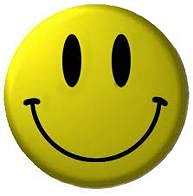
|
| Our ubiquitous annoyance. |
The life of emoticons:
:-) was the first internet emoticon; it was suggested by computer engineer Scott Fahlman in 1982. But the
quirky symbols are far from new. They were used in medieval manuscripts in the 15th century to cue
readers to emotional content.
In 1881 Puck Magazine presaged ASCll art with humorous proto-emoticons.
In 1912 Ambrose Bierce liked to insert a smiley U after jocular or ironic sentences.
With the advent of the typewriter, inventive typists found fun with the keyboard. Since you could type
and then back up to make type-overs possibilities were vast. Children typically made rows of marching soldiers and varied
expressions.
Emoticons became common in written correspondence. Like the O's for hugs and X's
for kisses, tongue and cheek comments were often followed with -). Now texters are dashing 'secret' motifs with flair.
The novelist Vladimir Nabokov proposed the smiley face in 1969. Two years later the Paris newspaper
'France Soir' used it to cue readers to upbeat news.
An ad for the 1953 movie "Lili" read: Today you'll laugh :-) You'll cry :-( You'll love <3 'Lili.' And
so it goes.
 ProPublica is the first online news
site to win the Pulitzer Prize-- and for good reason: great coverage and as bias-free as you'll ever find. It's a non-profit
news room that aims to produce investigative journalism in the public interest. What a concept.
go to ProPublica
When our libraries were heroic symbols of community pride.
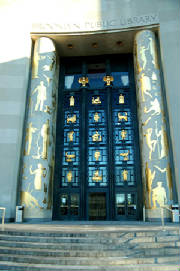
|
| Entrance, Brooklyn Public Library, New York. |
These words are chiseled into stone near the doors:
The Brooklyn Public Library, through the joining of Municipal
enterprise and private generosity offers to all the people perpetual and free access to the knowledge and the thought of all
ages. Here are enshrined the longing of great hearts and Noble things that tower above the tide.
Farther than arrow ~ higher than wings ~ fly
poet's song and prophet's word. While men have wit to read and will know ~ the door to learning is the open book.
The magic word that winged wonder starts the garnered
Wisdom that has never died. The world for Man ~ with all it may contain ~ is only what is compassed by the Mind.
"All that mankind has done, thought, gained or been:
it is lying as in magic preservation in the pages of books."
- Thomas
Carlyle
"What journeys of mind and spirit are there for the taking
with a library card." - David McCullough
"The peace
of great books be for you, stains of pressed clover leaves on pages. Bleach of the light of years held in leather."
- Carl Sandburg
Gonzo has left the building.
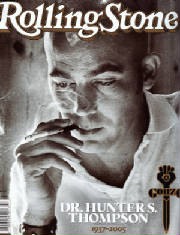
|
| Gonzo journalist Hunter S. Thompson (1937-2005) |
Hunter S. Thompson off the
masthead after heading the National Affairs Desk for 35 years. Said editor Jann Wenner:
"He was part of the DNA of Rolling Stone, one of those twisting strands of chemicals around which a new life is formed. He
was such a big part of my life, and I loved him deeply. He was a man of energy, physical presence, utter charm, genius talent
and genius humor. It's very hard to have to give him up and to say goodbye."
go to more epitaphs in "Rolling Stone"
Bob Woodward and Carl Bernstein boosted
investigative reporting, spurring throngs of students to enroll as journalism majors. But it was Hunter
S. Thompson who put the big kink in tradition with his tough personal reporting. And what he did cannot
be learned in any school.
Thompson was a sportswriter, political and social critic, and inspiration
for Garry Trudeau's comic strip. He did a savage take on Richard Nixon when no one else dared. He despised the way political
news was 'reported' by the clubby pack in the Washington press corps.
He was a blogger 30 years before the internet and didn't care
that mainstream media disdained him for breaking their rules. His candid observations were viciously joyful, and without
mudslinging. He hated phonies and his friends valued every moment they could be with him.
more on Hunter the Rube
"It's kind of like being a motivational speaker in a
hospice."
- Bill Keller, former executive
editor of the New York Times-- in a discussion about the fragile state of the newspaper industry.
Forget the stacks.
Prepare to enter the world of digitized maps, memoirs, bios, treatises,
polemics, letters, notes, texts, novels, speeches... well, actually, everything ever published-- sans paper.
Have we been Googled?
With
the Age of the Enlightenment in the 18th century came the "Republic of Letters."
The correspondence of Voltaire, Rousseau, and later Franklin and Jefferson,
fill long shelves of volumes. Writers of the time courted patrons and wangled their way into salons and academies where reputations
were made. The great flood of reading and writing was limited to the privileged, wealthy, and exclusive guilds. Access to
the profusion of new knowledge was far from democratic.
Then came a more egalitarian approach. The British Parliament set
the length of copyright at 14 years, renewable only once. In 1774, publishers sought to overturn this law, but they lost.
When, soon after, Americans drafted the constitution, they agreed that 28 years seemed long enough to protect the interests
of authors and publishers.
America was founded on these principles, with a twist.
Article 1, section 8 of the Constitution establishes copyright and patents for limited times only and subject to the higher
purpose of promoting "the progress of science and useful arts."
The Founding Fathers acknowledged "authors rights to a fair return on
their intellectual labor," but put public welfare before private profits. "Free To All" was inscribed at the entrance of the
Boston Public Library.
Now we see a dramatic shift on the "information landscape."
Goggle has been digitizing millions of books, including many covered by copyright, from the collections
of major research libraries, and making the texts searchable online.
Authors and publishers sued the company for violation of copyright law.
After lengthy negotiations, the plaintiffs and Google agreed on a settlement. The details are complex
and will have a profound effect on the way books reach readers.
The settlement created an enterprise known as the Book
Rights Registry to represent the interests of copyright holders. Google will sell access to a gigantic data bank composed
primarily of copyrighted, out-of-print books digitized from the research libraries.
A "public access license" will make this material
available to public libraries, where Google will provide free viewing of the books on one computer terminal–
but there are restrictions.
Readers cannot print out any copyrighted text without paying a fee to
the copyright holders. Of the seven million books the Google has digitized, one million are works in the public domain, one
million are in copyright and in print. Five million are in copyright but out of print.
Google’s laudable goal is to promote access to information.
But the class-action settlement makes the company invulnerable to competition.
Court approval of the settlement will take at least two years–
so things are far from settled. But if its approved, Google will control digitizing of virtually all the books covered by
copyright in the U.S.– a virtual monopoly of information.
It’s too bad the shareholders and future board members
of Google are in control. When book digitizing began in the 1990's, the Library of Congress and allied research libraries
could have designed a National Digital Library.
But it’s too late now. While the public authorities
slept, Google took the initiative. Yes, we’ve been googled.
more on copyright law
Are books obsolete?
Reading has migrated to digital screens. K-12 schools
are closing out their libraries. Book publishers are putting out "vooks" in electronic text (with video)to be read on-line
or on an iPhone.
Do schools even need books anymore? Some universities
say 'no,' for it's not possible to keep up with the flood of knowledge merely with available books. Go to the library
debate:
go to bookless libraries
go to libraries of the future
|
 |
 |
 |
|
The Giant's Comeback. Even
first-time writers are making serious money selling their books via digital downloads-- and print editions through Amazon.
The mavericks are running wild. SciFi writer Hugh Howey's series "Wool" is a classic example of an
early breakthrough. When his sales soared he hooked up with a literary agent and together they sold the film rights to
Ridley Scott. In turn, Simon and Schuster got involved-- making radical financial concessions to put its full marketing muscle
behind the series. E-books account for 20 percent of big publishers' revenue, and Amazon
is losing it's early lead in the blockbuster department. Publishers are back in the game big time, gradually reclaiming their
territory. Here's an astounding example: Vintage has sold at least one book of the "Fifty Shades of Grey" trilogy to one out
of every six American adults. That's volume. The Big Six heavy duty publishers are Random
House, Penguin, Hachette, Macmillan, Simon & Schuster, and Harper Collins. Their combined profit margins are relatively
better now than they were 50 years ago. They have the advantage of cherry-picking potential winners from the enormous
pool of self-published writers. Clearly they have found a way to regain control.
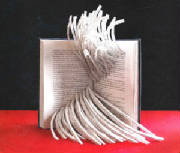
|
| Stephen Doyle, illustrator. |
go to Wired Magazine for "The Plot Thickens"
Future shock and megatrends are
history. Prepare yourself for the "Mobile Wave."
Magazines and DVDs were physical commodities that had
to be moved from here to there. Now they're icons on a screen. Michael Saylor's book "The Mobile Wave: How Mobile Intelligence
will Change Everything" is a reality jolt. The evolution
is so massive it's impossible to grasp, even though we are completely immersed in it.

Here comes the 5th Wave.
During the 4th Wave of the cyber-revolution-- the
computer and internet era-- about 5 percent of the economy was automated. But as we move into the 5th Wave, half of the
global economy will de-materialize.
Societies and industries will be altered forever as the Mobile Wave washes over us, changing
the cyber-landscape. Land and capital may become more of a liability than an asset. Social mobile
media will push businesses into thinking like software companies.
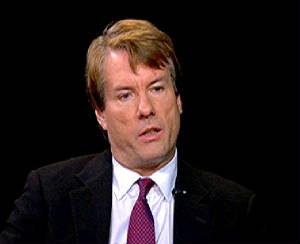
|
| Michael J. Saylor |
Michael Saylor, CEO of Micro Strategy, has written a ground-breaking analysis of the
impact of breath-taking change in "The Mobile Wave: How Mobile Intelligence will Change Everything."
Here are some 'Saylorisms:
"We’re living in a world where there will soon be 5 billion people with Smart Phones– and they
use them all the time– maybe sleep with them. Five billion people using them 150 hours a week.
"By then half the economy will be software. Most will emanate out of the U.S., in English, denominated in dollars.
A student in Pakistan or Turkey, or Argentina could get a free education in English. A four-year-old child could have a choice
of learning from a hundred languages without paying or asking permission."
Saylor is passionate about world-wide availabiity of education-- and has spent much of his fortune developing
his concept of online universities. Seems like he'd like to be the Andrew Carnegie of the 21st century.
He says "Education used to be a service provided by people. Now it is de-materializing into Wikipedia
and YouTube and unlimited resources. Every year we collect more data than we collected in the past two thousand years. (Soon
I-pads will be required for students– where in the past a #2 pencil and an eraser were enough.) Every person who wants
an education should have it with free access.
"There will be radically new types of transactions. The eye-opener is that in five years five billion people
will be using Smart phones with the power of and Android or I-phone. Those phones will be a thousand times more powerful–
and they will de-materialize wallets, cash, cameras, television, music, and magazines"
"The power of humanity will be untethered to an extent that we’ve never seen in the
history of the world." - Michael Saylor
You could create a key and put it on your phone and then use your phone to open a door. You could flip the
key to twenty people. You could create a key that works only when you’re not in the house– or only when you are
in the house.
You could create magical pieces of software that do things that most people may not yet have imagined.
Less product; more information.
Credit cards will be obsolete. You might have a software card that requires your concurrence if your partner
wants to spend more than a thousand dollars. You could create a software credit card that limits a son or daughter’s
spending to food but no alcohol on a college campus.
"The credential on the phone will be light years better than the ID in a wallet. It could be sent a thousand
miles away to wrap a check or a document to certify it, and notarize it– all from the palm of your hand.
"There are 20 million organizations on the planet with ID systems that are obsolete. They will all go through
a transformation in the next few years in a way that most people just can’t predict with linear thinking."
From Sci-Fi to Fantasy.
Software operates in cyberspace, not Newtonian space, says Saylor. "If you want
to be successful in a software company in the new economy you’ll need to be schooled more in fantasy than in science
fiction.
"In Sci-iFi you might think ‘I’ll try to throw a baseball
into outer space for 20 trillion miles and work on trajectory.’ But in fantasy you can throw a baseball and it becomes
a beach ball and then a pot of gold and then it converts itself into a Ferrari and you drive off. It’s very different.
"Take any product-- the obvious thing is to port it to the phone. The non-obvious thing
is how does it morph when you can do anything?"
go to Saylor interview on Charlie Rose
go to Saylor's education prototype
go to Wiki Saylor Bio
Where's the library? At the mall.
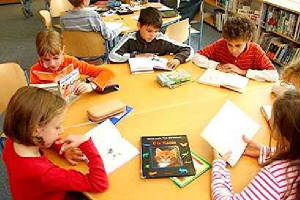
|
| More children are reading at the malls. |
Long ago bookmobiles came to a reader’s doorstep; that was convenience
to the max. Now libraries are transforming themselves yet again.
Libraries are finding new homes in shopping malls.
Dozens of libraries in malls are thriving throughout the
U.S. Their popularity stems from the obvious: convenience.
In the drive-thru, auto-bound, pumped-up pace of today’s
consumerist world, traditional libraries are suffering from budget cuts, reduced hours, inconvenient locations, and lack of
adequate parking space. The obvious solution is to be where the people are– at the mall.
Libraries are placing themselves square in the path of
customers– where they issue many thousands of new and renewed library cards-- and rank high among the branches.
"Bookmarks," the library in North Park Center Mall in Dallas,
is overwhelmed with its popularity. "Story times" are SRO twelve times a week.
At the Galleria at Sunset Mall in Henderson, Nevada, the
library lounge has comfy cafe-style seating areas where patrons enjoy free Wi-Fi, reading materials, and downloaded books.
In Wichita, there’s a branch library in a grocery
store. In Chicago there’s one in the historic, much-visited, Water Tower on Michigan Avenue.
In San Diego, where people will drive if there is more
than a 500-foot gap between stops, a library branch is located between Costco and Ikea.
The Genesee library at the Valley Mall in Flint, Michigan,
attracts more than 20 thousand users a month. Of the systems 18 locations, the mall is the third busiest.
When the King County system, which is among the largest
circulation libraries in the U.S., "shopped for a mall," they looked for big numbers and high foot traffic. Their mall library
in South Seattle is open 77 hours a week so users can visit evenings and weekends. Both staff and the literature is multilingual--
reaching out to the area’s growing immigrant population.
Roanoke’s Valley View Mall library’s best sellers
are a happy counterpoint to best buys in the stores. Librarians offer a spirit of calm and delight for a wide range of generations.
And there are ‘parking spaces’ for baby strollers.
The economy offers rare benefits to library authorities.
Non-recession-proof retailers are shutting their doors in regional centers and strip malls. Center managers are frantic to
'fill the gaps," and are dropping square-foot rents to attract new lessees.
They are also wooing libraries, who attract activity and
foot traffic. Comparing building costs with a free-standing structure makes it a no-brainer for libraries. It’s approaching
the point when shoppers are disappointed if they can’t find a library in the mall.
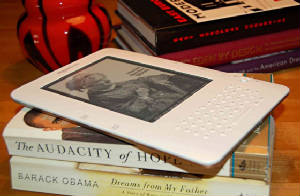
|
| Amazons slim Kindle version 2.0. |
Yes, you can curl up with a Kindle:
Amazon's Kindle 2 feels almost weightless in the hand, but it's
a powerful tool. Years from now it will doubltlessly seem limited and primitive (actually, it already is to techies) but it's
the best thing going for reading on a portable screen.
Sony and Google are trying to catch up, but Amazon leads the revolution.
A choice of 500 titles, plus top newspapers, magazines, blogs-- even e-mail--can be instantly, wirelessly,
downloaded via 'Whispernet.' And the text-to-speech feature, though a bit robotic, can be mightily useful to the blind and
dyslexic.
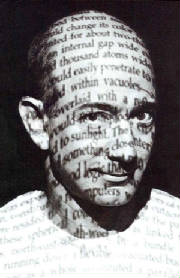
|
| Amazon CEO Jeff Bezos sees a new way to read. |
Jeff's big idea:
"You should be able to get any book-- not just any book
in print, but any book that's ever been in print, in less than a minnute."
The long-form book is the last bastion of analog, but digital is upon
us. The new reality is that all media, including books, are being engulfed by technology. Music, video, and short-form reading
have already gone digital.
Jeff Bezos, who started Amazon.com as an online bookstore,
is an avid bibliophile and reader.
Kindle
is the beginning of the sea change he foresees in how we read, write, and publish. It's easy to read, with a no-glare
surface and clarity of print. You can change font sizes, turn pages, and navigate your library with ease. Look ma--
no shelves!
"Reading without paper might make literature more
urgent and accesible than it was before the technology revolution-- just as Gutenberg did."
- Jacob Weisberg
The name "Kindle" was chosen to evoke the crackling ignition of knowledge.
Pen American Center
An association of writers working to advance literature,
defend free expression, and foster international literary fellowship. Sound interesting?
go to Pen American Center
"Books come from trees.
That's why we have branch libraries. "
- Gene Shalit
 |
 |
"The Da Vinci Code
is published in 47 languages. That makes it very hard to read." -- Craig Ferguson, Host of
"The Late Late Show", CBS.
Ferguson is the author of "Between
the Bridge and the River," a bright and bawdy novel and razor-sharp morality tale and "American
On Purpose," his autobiography.
|
|
 |
 |
Is Spam here to stay?
"It’s simple economics. We will see the end of spam when people
stop responding to it," says Jamie Tomasello at Cloudmark (a major anti-spam firm).
According to Brad Taylor, Gmail’s spam czar, "It costs $3,000.
to rent a BOTNET and send out 100 million messages. It takes only 30 Niagra orders to pay for that."
"Since there will always e suckers out there, the spam invasion will
continue no matter what protective measure you take. Scammers will get your inbox’s coordinates if your email appears
anywhere on the Web. And if you don’t lock down your social network’s privacy setting, they’ll find you."
E-mail hooligans are smart enough to evade the most advanced defenses.
When text filters started weeding out wordy solicitations, scammers switched to images.
When Gmail employed optical character recognition to catch those messages,
the scammers just broke up their pictographs into several blurry segments and foiled Skynet again.
Spammers take over abandoned and formerly reliable blocks of IP addresses
to bypass blacklists. They use clever Javascript tricks to hide a message’s real content from patrolling algorithms.
Ryan Singel, at Wired magazine says "Blockers are sophisticated and have
come up with new counter-measures to combat evil e-mail missiles. But since you want to make sure legitimate messages don’t
become collateral damage, filters have to stay a little bit loose.
So if you have zero tolerance for false positives, some spam will inevitably
sneak through."
Redroom is a site to interest readers
and writers. It's an interactive literary hub. Post your writing, connect with authors, and lots more. It's a compedium of
all things writerly.
|
The New York Times has joined with The International
Herald Tribune to publish the Global New York Times.
Have a look at the world's daily newspaper.
go to International Herald Tribune
"Whom do I tell when I tell a blank
page?"
- Virginia Woolf
"History
will be kind to me for I intend to write it." -
Winston Churchill
"The
truth is rarely pure and never simple."
- Oscar Wilde
Thinking about doing a memoir? Find your version of your life when you write about it.
more on the diarist's art
The Creative Habit:
The Creative Habit: Learn it and Use it for Life, Twyla
Tharp, Simon & Schuster.
Don't expect any dance jargon from acclaimed choreographer Twyla Tharp. She cuts to the essence of the creative
work ethic (emphasis on work.)
more on "The Creative Habit"
"There are as many ways to
scratch for ideas as there are ideas. The most common is reading.
If you're like me, reading
is your first line of defense against an empty head.. It's how you keep your mind disciplined...
It doesn't matter if it's a book, magazine, newspaper,
billboard, instrucrtion manual, or cereal box-- reading generates ideas, because you're literally filling your head with ideas
and letting your imagination filter them for something useful.
If I stopped reading
I'd stop thinking.
It's that simple."
- Twyla Tharpe
|
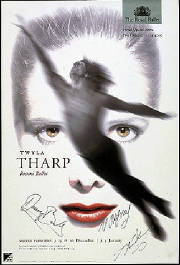
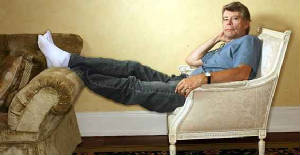 Stephen
King thinks
of his books as surfer's waves. "You ride six waves that are O.K., and then the seventh one is really great. But with every
seventh wave, you mess up the ride. So really it's only every 49th wave that's really a great wave, and I feel that way with
'Lisey's Story.' I'm surprised I had this book in me. It's a lucky book."
King wrote 'Lisey's Story' four years ago while recovering from
a severe bout of pneumonia that kept him in the hospital for a month. It was his second brush with death after being hit by
a van in Maine in 1999. The idea came to him when he returned from the hospital. In his absence, his wife, Tabitha,
had begun renovating his office. When he walked into his room the rugs were gone and most of his books and papers were boxed
up.
'I went in there, and I could barely walk, and I could barely breathe.
I thought, this is what places look like when somebody's died. I thought to myself, this is what it is like to be a ghost.'
But he couldn't stop writing. "When I started to feel better, I felt like I wanted to work. What else am I going to do? I
don't parasail."
At 61, he's feeling his mortality. "You get older, you find out time
is shorter, and you read stuff that you've missed before. You say, 'I can't wait forever anymore to read Eudora Welty.' I
finally got to her, so maybe I'm just meeting a better class of literary person. And he's reading D.H. Lawrence, Richard Wilbur,
and James Dickey. His new novel has an intense focus on language. "Love of the word is more important
to me now."
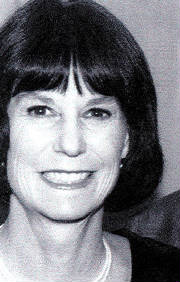
|
| Betsy Burton |
Ever think about opening a bookstore? That fantasy is like a recurring dream of readers who frequent these rapidly disappearing places.
The secret weapon of small bookstores is the author-signing event.
Too bad that’s not all there is to it. Survival in this ‘dying business" requires strong passion and savvy.
Betsy Burton has
that in spades. Owner of "The King’s English" in Salt Lake City since 1977, she is strikingly determined to thrive.
She has given great amounts of money, time and energy to keep her doors open and her staff employed.
Her insightful book, "The King’s
English: Adventures of an Independent Bookseller," is both a caution and inspiration for her struggling colleagues.
(Gibbs Smith Publishers).
Map of Imaginery Manhattan
Ralph Ellison's Invisible Man was up on
Lenox and 123rd at 8 o'clock and... well, he and other fictional characters who lived and worked in New York are now plotted.
Readers of John D. MacDonald really 'know' Fort Lauderdale, just as
readers of Sara Paretsky 'know' Chicago, and Raymond Chandlerphiles 'know' L.A.. So many authors have set their stories in
Manhattan that the place is heavily populated by other 'invisible' beings.
go to "Imaginery Map of Manhattan"
Another great read:
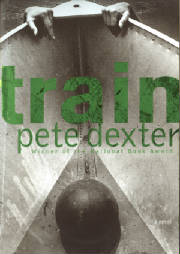
"Train," by Pete Dexter.
It's a tale of love, murder, and mayhem in 1940's Los Angeles-- but
a mile above a genre mystery. A year later you may not remember details of the plot, but the characters will be
seared into memory-- you might even wonder what they're doing today.
Pete Dexter, winner of the National Book
Award, will sweep you away with his compassionate eye and economy of style. Train is a black caddy at a posh Westside golf
course. Sergeant Miller Packer is a police investigator who falls for Nora, the sole survivor of a botched boat hijacking. As
their lives intersect, Dexter paints the wrestling of the dark and tender in their natures-- and every word counts.
|
"Books
are companions, teachers, magicians, bankers of the treasure of the mind. Books are humanity in print."
- Barbara Tuchman
The most human of instincts-- our need to leave a trace...
|
|
| Katherine Mansfield (1888-1923) |
"I am 33, yet I'm only just beginning
to see what it is I want to do. It will take years of work to really bring it off . . . how unbearable
it would be to die and leave scraps, 'bits,' nothing really finished."
- Katherine
Mansfield, the British writer, who lived in New Zealand and was a master of the short story, died of tuberculosis a
year after writing this journal entry.
* * *
"When I've finished
my book, and if I finish it, I will start working on correcting my shortcomings."
- Albert
Camus, in a letter, one week before he was killed in an auto accident.
"It's important to have a healthy disregard
for the impossible."
- Larry Page, co-founder of Google
As a graduate student at Stanford, Larry
Page said he wanted to download the internet and find a better way to search for information. He left school and did
exactly that. Along with Sergey Brin he created Google-- a ingenious bifurcation of hardware
and software that outpaces all others.
In "The Google Story"
co-author David Vise notes that "Not since Johannes Gutenberg invented the modern printing
press more than 500 years ago-- making books available to the masses-- has any new invention empowered individuals and transformed
access to information as profoundly as Google.
It has become an extension of our brains, producing
speedy, relevant results to our questions hundreds of millions of times daily in more than 100 languages... a seductive form
of instant gratification for the mind."
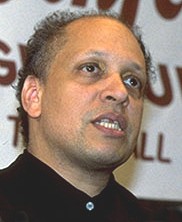
|
| Walter Mosley |
Admirers of
Walter Mosley's 'stripped-down writing' may be interested to know that he writes naked.
Click "more" for his writing regime, the enthralling "Man in the Basement,"
and his new essay "Life Out of Context."
more on Walter Mosley
go to Walter Mosely
USC's Annenberg School for Communication
has launched the International Journal of Communication (IJ0C). Editors are Manuel
Castells and Larry Gross. The e-journal is free and worthy of your attention.
go to International Journal of Communication

|
| Save the Internet. |
more on saving the internet
go to Free Speech Online
Spotlight on great libraries:
|
|
| America's largest public library, in Chicago. Click to enlarge. |
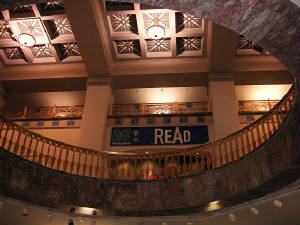
|
| Rotunda of the Chicago Library. Click to enlarge. |
more on the Chicago Library
go to Chicago Library

|
| "The Big Read" logo. |
The National Endowment for the Arts has
launched THE BIG READ project to create a nation of readers, i.e. to
restore reading to the center of American culture. Eight books at a time are featured. Get info on the project, book
choices, events, and available grants.
PROFOUND vs. ESCAPIST
CLASSICS vs BEST SELLERS
What's your call?
Just what is light reading?
This year it's a respite from current affairs, numbing news, piles of magazines, and
a steady stream of blah-blah political rants and world analyses tomes. The fluff and fun of a nifty page turner is a fast-acting--
but short lasting-- antidote. Let's go for the choice writing out there that perks up, refreshes, reboots, and entertains
our tired brains. Seek and enjoy.
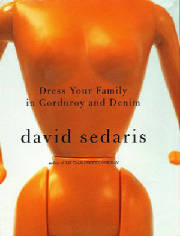
Dress Your Family in Corduroy and Denim, by David
Sedaris.
Don't cheat yourself out of a wonderful read by skipping
this book. It's the apex of the memoirist's art: Private
essays reeking with wit and surprising associations recalling the mundane and bizarre. Each piece has the arc and precision
of the best stand-up performance.
more on David Sedaris
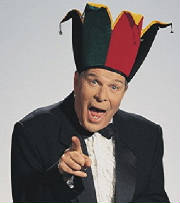
|
| Lederer, by Hoffman Photographic |
Richard
Lederer probes the
mystery of how writers write.
"Emile Zola pulled the shades and composed
by artificial light. Francis Bacon knelt each day before creating his greatest works. Martin Luther
could not write unless his dog was lying at his feet, while Ben Jonson needed to hear his cat purring.
Marcel Proust sealed out the world by lining the walls of his study with cork. Gertrude
Stein and Raymond Carver wrote in their cars, while Edmond Rostand
preferred to write in his bathtub. Wallace Stevens composed poetry while walking to and from
work each day at a Hartford insurance company. Alexander Pope and Jean Racine
could not write without first declaiming at the top of their voices. Jack Kerouac began each night
of writing by kneeling in prayer and composing by candlelight."
HOW DO TO SPUR YOUR WRITING?
 |
 |
Keep the reins on the FCC
Since 1996, The FCC, has promoted
massive media consolidation by giving licenses to broadcasters to use our airwaves. Are they assuring our rights to information--
or are they too cozy with big media lobbyists when they rewrite legislation?
(Commissioners have enjoyed lots of "free" trips over
the years-- paid for by the broadcasters that they regulate. What's the deal here?) We need to keep the FCC
commissioners accountable as servants of the public. Who has their "ear?" Let your voice be heard!
more on the FCC
|
|
 |
 |
 |
 |
URBANICITY looks at books that have been on the shelf for a while. In the deluge of
first editions and media review titles hyped by publishers-- fine work can slip below the radar and miss its
rightful due...
Last year more than 95 thousand titles flowed from U.S. publishing
houses. That's about 15 thousand less than in 1999. The difference is more than made up by the profusion of self-publishing,
low-volume print houses,
e-books, downloads, and Acrobat printouts. Anyway, it's a lot
of books.
The 'remainder' pile is full of gold. At two years post-production
books can be purchased at cutrate prices as catalog closeouts, used books, or paperbacks.
The best book buyers are scavengers.
Go forth and find-- and read.
|
|
 |
 |
|
 |
|
|
|

